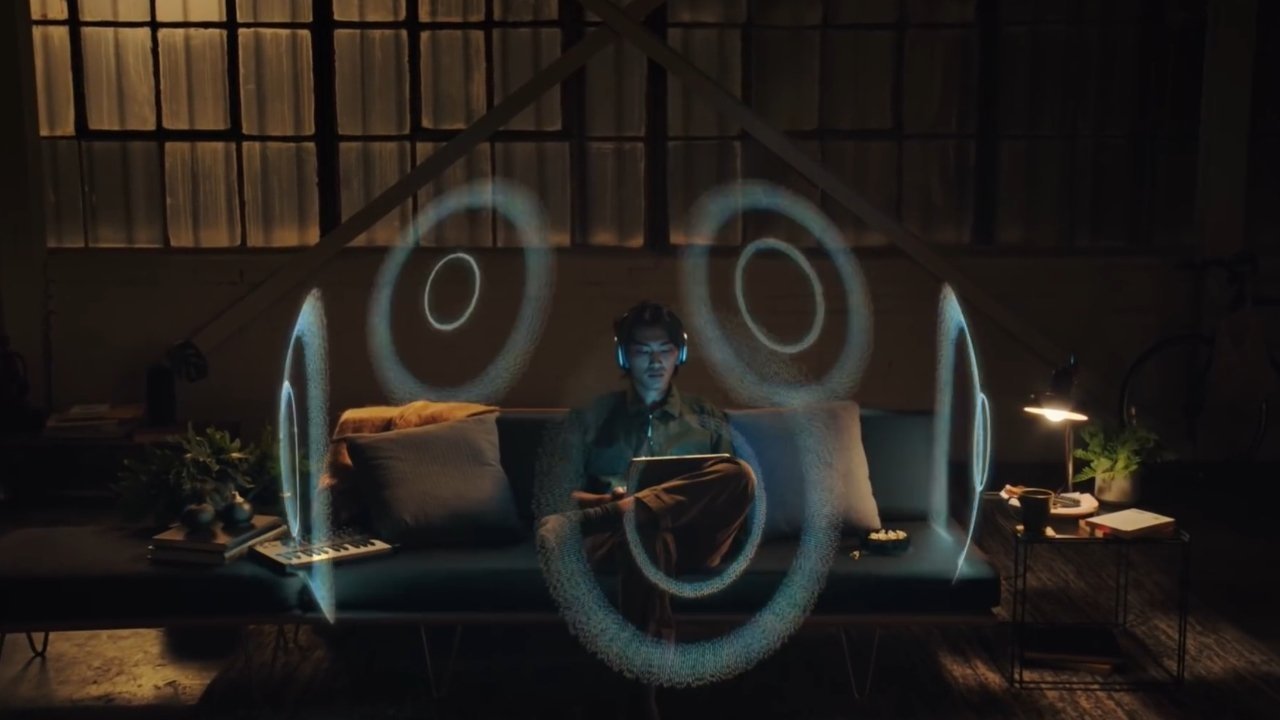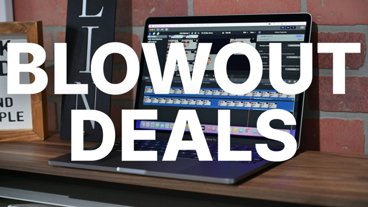Apple is working on developing a system that could integrate spatial audio experiences into virtual or mixed reality platforms, potentially for a head-mounted device like Apple Glass.
In a patent application on July 8, Apple details an interface system that could present a "synthesized reality" to users. However, the patent application details how this reality could go beyond visual and include other senses, such as hearing.
A synthesized reality, in this case, is defined as an entirely or partly computer-generated setting that a user could interact with or sense. That covers both virtual reality and augmented reality — both technologies that Apple is rumored to be working on.
The patent details a user interface system that could adjust an experience beyond the visual.
"For example, a SR system may detect an individual walking a few paces forward and, responsive thereto, adjust graphics and audio presented to the individual in a manner similar to how such scenery and sounds would change in a physical setting,"
"An individual may interact with and/or sense a SR object using any one of his senses, including touch, smell, sight, taste, and sound. For example, an individual may interact with and/or sense aural objects that create a multi-dimensional (e.g., three dimensional) or spatial aural setting, and/or enable aural transparency," the patent reads.
More specifically, Apple says that the inclusion of multi-dimensional or spatial aural settings could "provide an individual with a perception of discrete aural sources in multi-dimensional space."
Apple in 2021 introduced a new Spatial Audio feature that recreates the experience of listening to audio content in three-dimensional space. What the patent suggests is that this technology could be incorporated into Apple AR or Apple VR experiences to enhance the realism or user interaction.
The Cupertino tech giant is said to be working on multiple head-mounted devices, including a mixed-reality visor aimed mostly at gaming and interactive experiences and "Apple Glass," a more compact HMD that would integrate with an iPhone.
The patent lists Ian M. Richter, Christopher Eubank, and Tomlinson Holman as its inventors. Richter and Eubank have been named on previous "Apple Glass"-related patents, while Holman is an audio expert who has worked on AirPods-related patents. Holman is also the inventor of Lucasfilm's THX high-fidelity audio system.
Apple files numerous patent applications on a weekly basis, and not all of them describe technology that's used in a consumer product. Patent applications don't give any indication of if or when a technology may make it to market.
Keep up with everything Apple in the weekly AppleInsider Podcast — and get a fast news update from AppleInsider Daily. Just say, "Hey, Siri," to your HomePod mini and ask for these podcasts, and our latest HomeKit Insider episode too.
If you want an ad-free main AppleInsider Podcast experience, you can support the AppleInsider podcast by subscribing for $5 per month through Apple's Podcasts app, or via Patreon if you prefer any other podcast player.
 Mike Peterson
Mike Peterson






-m.jpg)






 Charles Martin
Charles Martin


 Wesley Hilliard
Wesley Hilliard
 Stephen Silver
Stephen Silver
 William Gallagher
William Gallagher

 Marko Zivkovic
Marko Zivkovic









6 Comments
Was hoping they were working on a Spatial Audio speaker system.
My guess is that there's a Spatial Audio speaker system prototype in a lab somewhere in Cupertino and probably has been for years, long before the HomePod and HomePod mini. Remember Apple's iPod Hi-Fi?
We know that Apple prototypes hundreds of different concepts and only a handful make it onto store shelves as actual products.
I'm willing to bet that whatever Apple has running does not have enough innovative distinction to separate it from the bajillion surround sound systems that have been on the market for decades.
Apple is not going to market something that has very little original compared to the competition. And if they can't find a way to innovate enough to separate themselves from the competition, they pull out of the market. Like AirPort wifi routers, like standalone MP3 players, like Time Capsule. They've also largely retreated from the first-party monitor business (apart from the pro model).
If it doesn't change the category like iPad did for tablets or Apple Watch did for smartwatches, Apple's not going to release a spatial audio speaker system.
It's also important to point out that regular speaker systems are highly dependent on the room itself: geometry, furnishings, materials, etc. I know that the acoustics in my bedroom are far different than those of my living room.